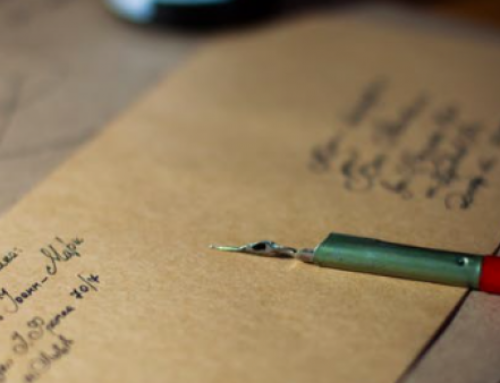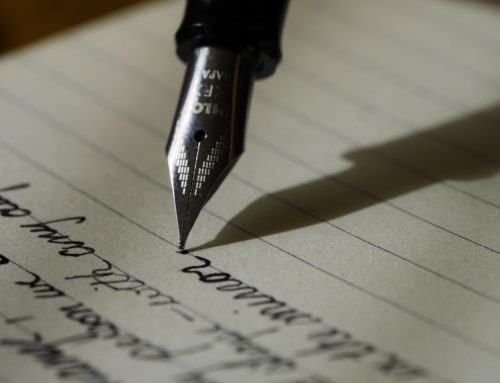Editors’ note: Though it plays with “advice column” in form, the goal of Yours Sincerely, An Uncertain Anthropologist is not to elicit prescriptive answers nor to develop universal disciplinary principles. The views and opinions expressed in the letters do not represent the breadth of perspectives within the field nor do they necessarily reflect those of the editors. By facilitating these exchanges, we do not expect to reach consensus or offer certainty. Instead, the aim is to create a space for grappling with ethical uncertainty and to invite ongoing dialogue within our professional and intellectual communities. Read more about this series and the call for letters here.
Dear Colleagues,
Some time ago, I had the opportunity to complete a peer review for a piece that involved personal disclosures of a sensitive nature. Through the review process, I kept thinking about how best to communicate my comments on the parts of the work that involved these self-disclosures. Would acknowledging the sensitive nature of the disclosures be sufficient? Given the vulnerability the author showed in writing the piece, would it be appropriate to offer suggestions on these aspects of the writing? Would asking for more context, for example, be triggering to the author? Unlike with a colleague, where critique might be offered within an existing framework of trust or awareness of how that person might best receive feedback, the nameless nature of the peer review meant I could only convey so much through my comments as an anonymous reviewer.
How should we best navigate providing feedback in sensitive and productive ways through systems of anonymous peer review? How can we be fully accountable when we provide anonymous critique, especially when that critique involves commenting on someone else’s personal experience?
Sincerely,
Reluctant Reviewer 2
Dear Reluctant Reviewer 2,
You are taking your responsibility to potentially vulnerable authors seriously – good on you. This question is timely, important and, quite frankly, kind. I wish there were more conversations about reflexivity in the peer review process!
Personal disclosure, whether in stand-alone works of autoethnography or in autoethnographic vignettes layered into other writing, is something reviewers are likely to encounter in contemporary anthropology. I think many scholars share your concern about what is helpful and appropriate feedback in these cases.
If we can avoid hurting our colleagues, it certainly behooves us to do so.
On one hand, there is a simple answer to your question: by all means, if you have suggestions about how an author’s writing – any of their writing – might be improved, sharing those suggestions is a boon to the work. It does an author no favors, particularly when their writing might bend or break genre conventions, to let people publish something that is less-than-stellar. They may be held to a higher standard in some venues precisely because of the personal nature of their writing; your insights can open doors.
On the other hand, there is a question as to how you communicate your insights. I believe there are ways to build some of the trust you wisely mention – even in an anonymous review, even at a distance – that can minimize the potential trauma of critical feedback. The first step is to engage in close, empathetic reading.
I turn to the example of my writing teacher and friend, Ariel Gore. Gore has taught thousands of students from all over the world in her online memoir workshops. Students regularly disclose intensely personal stories – after all, that is what makes for compelling memoir. Most of Gore’s students want to be better writers. This means she has to provide feedback on sometimes difficult material to people she is unlikely ever to meet in person.
Gore recommends always starting with something about a piece of writing that stays with you: Was there an image or a turn of phrase that really caught your eye or ear? Then you can find spots in the text that might be seeds for greater growth. What would you like to hear more about? What details or context might help you as a reader?
If you ask these questions in the spirit of lifting up what is working in the piece and encouraging the author to build on its strengths, the review will most likely be read with gratitude.
One final note, though, Reviewer 2: If you simply don’t think that personal disclosure has a place in anthropology or you dislike first-person narrative, I would highly encourage you to decline the review in the first place. While it might not be your cup of tea or something you might write yourself, the fact is that autoethnography has deep roots in anthropology. It is not a trend, but with us to stay. If your concern is that the disclosure is there at all, please pass and move on.
Your Friend,
Megan Moodie
Associate Professor of Anthropology
UC Santa Cruz
Dear Reluctant Reviewer 2,
You ask an important set of questions in a moment where many parts of the academy and broader society have begun to value vulnerability and reflexivity as modes of knowledge production. Where reviewers frequently play the role of critic or “devil’s advocate,” how else can we help authors improve their final product?
The “golden rule” is always a good starting place for reviewers: how would you like to be treated if you were in a similar circumstance? From the position of the vulnerable author, you have bravely put your words on the page for the world to see, but your goal may be to teach, provoke thought, or possibly foster debate. Our goal as reviewers is to help ensure that the “why” of their vulnerability is clear to readers; otherwise, they are bearing their souls without achieving their objective.
That same golden rule also reminds us it is not only what we say as reviewers that matters, but how we say it. As reviewers we often focus on the “what” and “how” of the piece we are reviewing, but allow the anonymity of the review process to neglect how we convey our suggestions: are we harsh, blunt, or critical when we could just as easily be sensitive, thoughtful, or encouraging? This issue of delivery may be particularly salient for a piece that involves the kind of sensitive information outlined in your question.
Lastly—in the spirit of vulnerability provoked by your questions—I will share an example from my own work concerning a personal matter. In my first book, Cuban Color in Tourism and La Lucha (Oxford University Press, 2011), while introducing several key interlocutors who show up throughout the book, I mentioned that I had met, married, and divorced the most central of them. Reviewer #4 conveyed that it would be helpful if I shared the implications of that relationship to my findings; since reflexivity was one of my stated methodologies in the book, they suggested that I say more. They didn’t demand it or require it, but the feedback made me realize how much richer the book would be if I dug a little deeper. More than a decade later, I can still recall taking a deep breath, closing my eyes, and putting my fingers to the keyboard to type out a section titled “On the Ethics of Romantic Relationships in the Field.” I continue to receive emails and other feedback on how evocative and important that section is. Because the reviewer couched their comments in the “why,” I was willing to share more than I might have been initially and write in a way that was healing for me and potentially others.
Your questions acknowledge how reviewer feedback is received on the other end by a feeling person who poured something of themselves into the scholarship under analysis. Indeed, such concern could be extended whether the piece under review involves personal and sensitive disclosures or not; anonymity is not an excuse to be hurtful to our disciplinary colleagues if we can help it.
Thank you for the opportunity to give this some thought!
With compassion,
Kaifa Roland, Ph.D.
Director of Global Black Studies and Associate Professor of Interdisciplinary Studies
Clemson University
Cite As:
Anonymous. 2023. “Your Sincerely, Reluctant Reviewer 2” In “Yours Sincerely an Uncertain Anthropologist,” edited by Paige Edmiston and Alexandra Dantzer, American Ethnologist website, September 27 2023, https://americanethnologist.org/online-content/collections/yours-sincerely-an-uncertain-anthropologist/your-sincerely-r…ctant-reviewer-2/
Moodie, Megan. 2023. “Dear Reluctant Reviewer 2” In “Yours Sincerely an Uncertain Anthropologist,” edited by Paige Edmiston and Alexandra Dantzer, American Ethnologist website, September 27 2023, https://americanethnologist.org/online-content/collections/yours-sincerely-an-uncertain-anthropologist/your-sincerely-r…ctant-reviewer-2/


